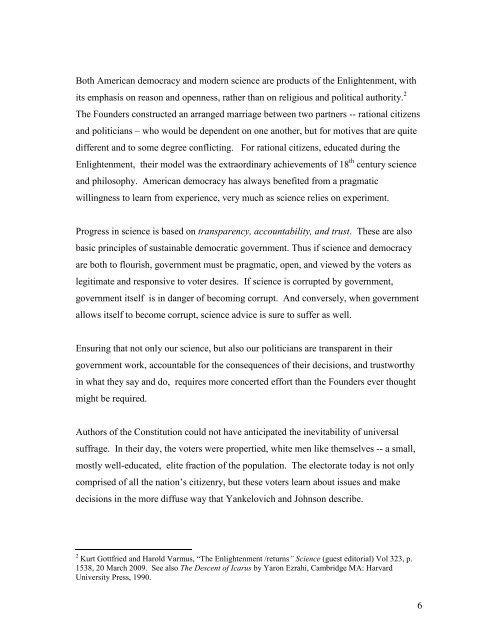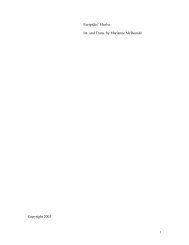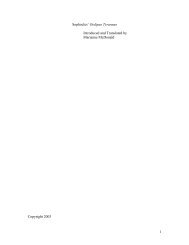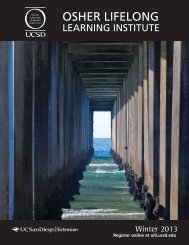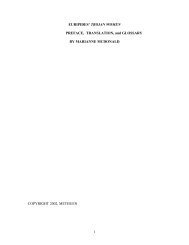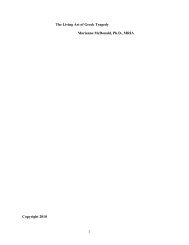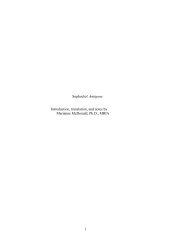1 The Wobbly Three-Legged Stool: Science, Politics, and the Public ...
1 The Wobbly Three-Legged Stool: Science, Politics, and the Public ...
1 The Wobbly Three-Legged Stool: Science, Politics, and the Public ...
Create successful ePaper yourself
Turn your PDF publications into a flip-book with our unique Google optimized e-Paper software.
Both American democracy <strong>and</strong> modern science are products of <strong>the</strong> Enlightenment, with<br />
its emphasis on reason <strong>and</strong> openness, ra<strong>the</strong>r than on religious <strong>and</strong> political authority. 2<br />
<strong>The</strong> Founders constructed an arranged marriage between two partners -- rational citizens<br />
<strong>and</strong> politicians – who would be dependent on one ano<strong>the</strong>r, but for motives that are quite<br />
different <strong>and</strong> to some degree conflicting. For rational citizens, educated during <strong>the</strong><br />
Enlightenment, <strong>the</strong>ir model was <strong>the</strong> extraordinary achievements of 18 th century science<br />
<strong>and</strong> philosophy. American democracy has always benefited from a pragmatic<br />
willingness to learn from experience, very much as science relies on experiment.<br />
Progress in science is based on transparency, accountability, <strong>and</strong> trust. <strong>The</strong>se are also<br />
basic principles of sustainable democratic government. Thus if science <strong>and</strong> democracy<br />
are both to flourish, government must be pragmatic, open, <strong>and</strong> viewed by <strong>the</strong> voters as<br />
legitimate <strong>and</strong> responsive to voter desires. If science is corrupted by government,<br />
government itself is in danger of becoming corrupt. And conversely, when government<br />
allows itself to become corrupt, science advice is sure to suffer as well.<br />
Ensuring that not only our science, but also our politicians are transparent in <strong>the</strong>ir<br />
government work, accountable for <strong>the</strong> consequences of <strong>the</strong>ir decisions, <strong>and</strong> trustworthy<br />
in what <strong>the</strong>y say <strong>and</strong> do, requires more concerted effort than <strong>the</strong> Founders ever thought<br />
might be required.<br />
Authors of <strong>the</strong> Constitution could not have anticipated <strong>the</strong> inevitability of universal<br />
suffrage. In <strong>the</strong>ir day, <strong>the</strong> voters were propertied, white men like <strong>the</strong>mselves -- a small,<br />
mostly well-educated, elite fraction of <strong>the</strong> population. <strong>The</strong> electorate today is not only<br />
comprised of all <strong>the</strong> nation’s citizenry, but <strong>the</strong>se voters learn about issues <strong>and</strong> make<br />
decisions in <strong>the</strong> more diffuse way that Yankelovich <strong>and</strong> Johnson describe.<br />
2 Kurt Gottfried <strong>and</strong> Harold Varmus, “<strong>The</strong> Enlightenment /returns” <strong>Science</strong> (guest editorial) Vol 323, p.<br />
1538, 20 March 2009. See also <strong>The</strong> Descent of Icarus by Yaron Ezrahi, Cambridge MA: Harvard<br />
University Press, 1990.<br />
6


